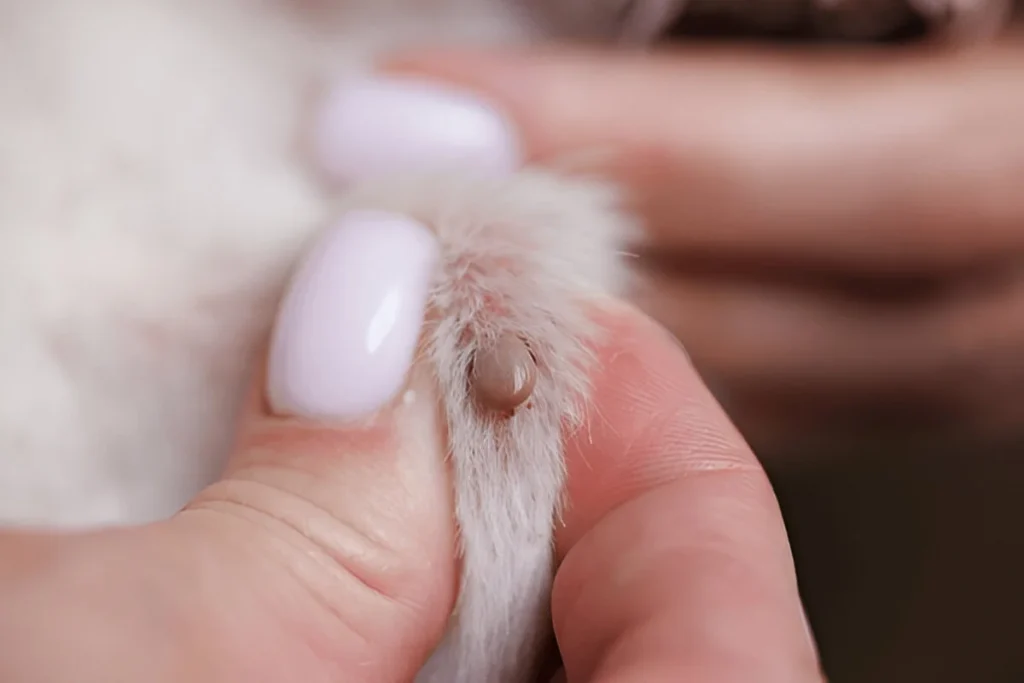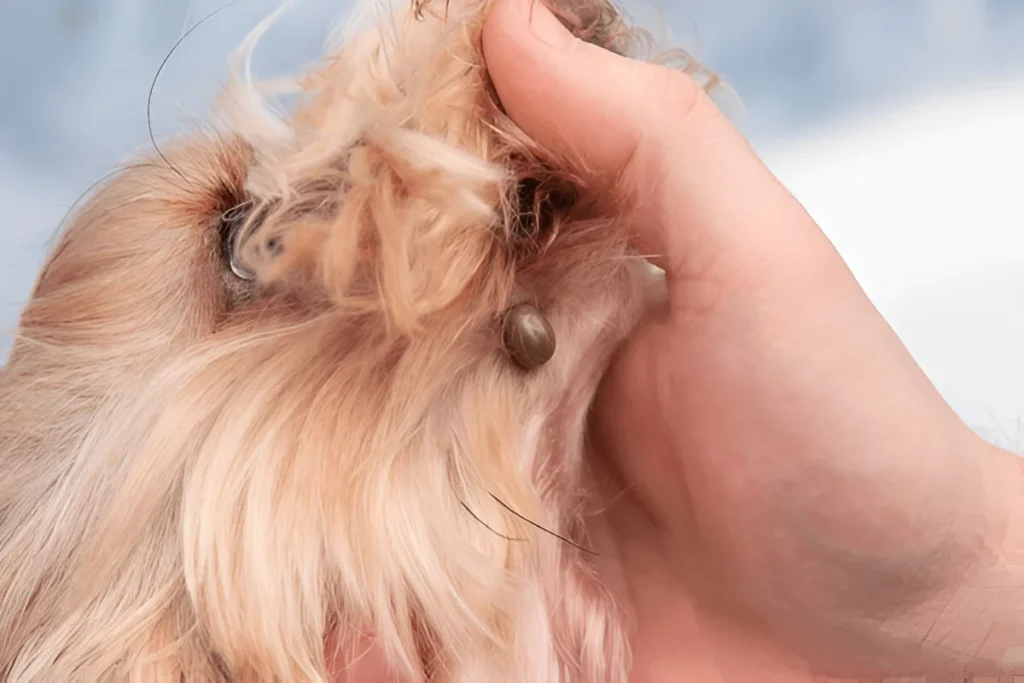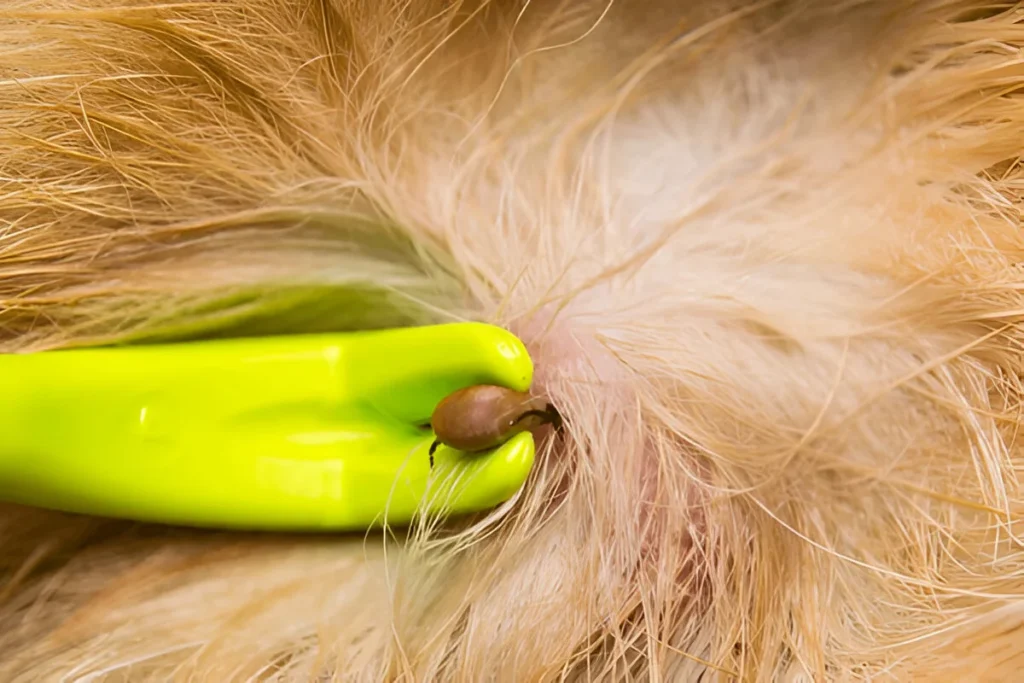-
Kutchina service center, Kolkata - 700010
Kutchina service center, Kolkata - 700010

Tick fever in pets can become a serious concern during Indian monsoons. Learn how a reputed pet clinic can guide you in preventing, detecting, and managing this disease to ensure your pet’s safety.
When the monsoon rains sweep across India, the cool breeze and lush greenery bring a sense of relief after scorching summers. Unfortunately, the same season also creates perfect breeding grounds for ticks. And with ticks comes the heightened risk of tick fever in pets—a disease that can be dangerous if not detected and treated early.
Pet owners often underestimate just how quickly ticks can multiply and transmit infections. Managing this risk during the rainy season isn’t just about removing ticks; it’s about adopting a complete prevention, detection, and care strategy.

Tick fever is a parasitic disease transmitted through the bite of infected ticks. In India, the most common forms are caused by Babesia and Ehrlichia species. These parasites attack a pet’s red blood cells, leading to anemia, organ damage, and, if untreated, life-threatening complications.
Key facts to know:
Monsoon conditions—moist soil, tall grass, and increased vegetation—are a paradise for ticks. During this period, your pet is more likely to pick up ticks from:
Ticks don’t need long to transmit infections; in some cases, the disease can spread within hours of attachment.
Recognizing the signs early can make all the difference. Watch for:
If your pet shows a combination of these symptoms, a veterinary check-up should be scheduled immediately.

After walks or playtime, run your fingers through your pet’s fur to check for ticks. Focus on areas like the ears, neck, underarms, and between toes.
Use vet-approved tick collars, spot-on treatments, or oral medications. Never rely on home remedies without professional guidance.
Wash your pet’s bedding weekly in hot water and vacuum carpets frequently to reduce indoor tick presence.
Limit walks in tall grass or overgrown areas during the rainy season.
Professional grooming ensures ticks are spotted and removed before they cause harm.
Diagnosis usually involves:
Prompt veterinary intervention dramatically improves recovery chances.
While medical treatment is essential, some supportive measures can aid healing:
As a pet parent, your responsibility doesn’t end at the clinic. You can speed up your pet’s recovery by:
Tick fever is not just an individual pet issue—it’s a community concern. Stray animals often carry ticks, which can spread to pets in the neighborhood. Coordinated efforts, like community-driven tick treatment for stray dogs, can greatly reduce the problem.
Managing tick fever in pets during Indian monsoons requires more than just basic care. It takes expertise to select the right prevention products, interpret blood test results, and manage advanced cases.
Pet clinics recognized for their comprehensive care, especially those ranked among the Best Pet Clinic in Kolkata, combine advanced diagnostics with compassionate treatment. One such trusted provider, APC Pet Clinic, integrates preventive education, early detection, and tailored recovery plans to ensure pets stay safe and healthy through challenging monsoon seasons.

Q1. Can tick fever spread from pets to humans?
No, tick fever caused by Babesia and Ehrlichia in pets does not directly infect humans. However, ticks can carry other zoonotic diseases, so caution is essential.
Q2. How long does treatment take?
Mild cases may improve within a week, but complete recovery can take several weeks depending on severity.
Q3. Can cats get tick fever?
Yes, although it’s less common in cats, they can still be infected and should be checked regularly.
Q4. Is there a vaccine for tick fever?
In India, no widely available vaccine exists for the common forms of tick fever in pets. Prevention remains the best approach.
Q5. What happens if tick fever is left untreated?
Untreated cases can lead to severe anemia, organ damage, and in some instances, death. Early veterinary intervention is critical.
Tick fever is one of the most preventable yet potentially dangerous diseases affecting pets during Indian monsoons. Through early detection, consistent prevention, and prompt veterinary treatment, pets can recover fully and avoid serious complications.
Pet owners play a vital role in this process—not just by caring for their own animals, but also by fostering a tick-free environment in their communities. Clinics that prioritize both medical excellence and preventive education, are helping set the standard for responsible pet care in India.
A healthier, happier monsoon season for your pets begins with awareness, vigilance, and the right guidance.